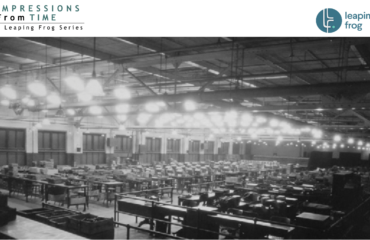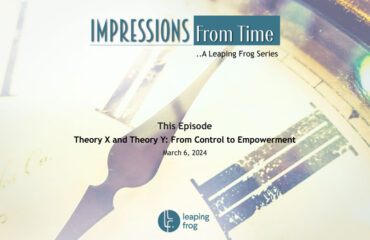
Beyond Basic Needs: Herzberg’s Two-Factor Framework
Beyond Basic Needs: Herzberg’s Two-Factor Framework: In the field of organizational psychology, few theories have had as profound an impact as Frederick Herzberg’s Two-Factor Theory of motivation. Herzberg, an esteemed American psychologist, unveiled this ground-breaking theory in his seminal work “The Motivation to Work”, published in 1959. Through meticulous research and a series of interviews with hundreds of employees across various industries, Herzberg sought to unravel the complexities of workplace motivation and satisfaction.
At the core of Herzberg’s theory lay a fundamental insight: not all factors influencing job satisfaction and dissatisfaction were the same. He identified two distinct sets of factors that played crucial roles in shaping employee attitudes and behaviours: hygiene factors and motivators. Hygiene factors encompassed elements such as salary, working conditions, company policies, and interpersonal relationships. These factors, Herzberg discovered, were essential in preventing dissatisfaction when adequately addressed. However, their enhancement did not necessarily lead to increased job satisfaction or motivation.
In contrast, motivators were found to contribute to job satisfaction and intrinsic motivation directly. These factors, which included recognition, achievement, responsibility, and opportunities for personal growth, were inherently tied to the nature of the work itself and the sense of fulfilment derived from it. According to Herzberg, the presence of motivators was crucial for fostering a deep-seated sense of satisfaction and engagement among employees.

Picture Credit: https://www.techjockey.com/blog/herzbergs-two-factor-theory-of-motivation
One of the key insights Herzberg’s theory brought to light was the nuanced relationship between job satisfaction and dissatisfaction. Contrary to prevailing beliefs that viewed them as opposite ends of the same spectrum, Herzberg proposed that they were influenced by distinct factors. Addressing hygiene factors could eliminate sources of dissatisfaction, but it was the presence of motivators that truly fuelled job satisfaction and intrinsic motivation.
Herzberg’s Two-Factor Theory revolutionized the understanding of employee motivation and had far-reaching implications for organizational practices. It challenged traditional approaches to job design and management by emphasizing the importance of intrinsic motivators over extrinsic rewards.
Traditionally, organizations have often focused on addressing hygiene factors to prevent employee dissatisfaction. However, Herzberg’s theory challenges this transactional approach by emphasizing the importance of motivators like recognition, achievement, and responsibility. These intrinsic factors play a pivotal role in igniting employees’ passion for their work and fostering deep engagement.
The theory underscores the significance of meaning and purpose in driving employee engagement. Employees are more likely to feel committed to their roles when they perceive their work as meaningful and aligned with their values. As such, organizations that prioritize creating a sense of purpose and significance in employees’ roles are better positioned to cultivate high levels of engagement and performance.
Furthermore, Herzberg’s theory highlights the importance of tailoring engagement strategies to the unique needs and preferences of individual employees. While certain motivators may resonate universally, the specific drivers of engagement can vary significantly from one individual to another. Therefore, organizations must adopt a personalized approach, taking into account factors such as individual strengths, aspirations, and career goals.
Herzberg’s Two-Factor Theory serves as a foundational framework for understanding and enhancing employee engagement in organizations. By recognizing the dual nature of motivation and addressing both hygiene factors and motivators, organizations can create environments where employees feel valued, inspired, and fully engaged in their work, leading to greater satisfaction and productivity across the board.
……………………………………………………………………………………………………………………………………
“Impressions From Time” is a curated series from Leaping Frog about stories from the past that have helped shape modern-day practices in the people and organisation domain.
Leaping Frog, a new-age consulting firm, is an enabler and co-creator in enhancing people and organisational effectiveness. We love doing work in the areas of “Driving Organisational Change and Development”, “HR Systems and Talent Strategy”, and “Leadership and Life Coaching”.
Connect and share, for work and more.
Mail: comm@leapingfrog.in
Website: www.leapingfrog.in
Follow Us: https://lnkd.in/d7TQbsia




